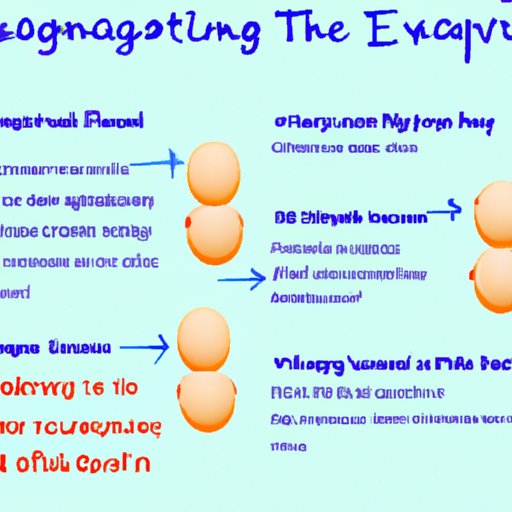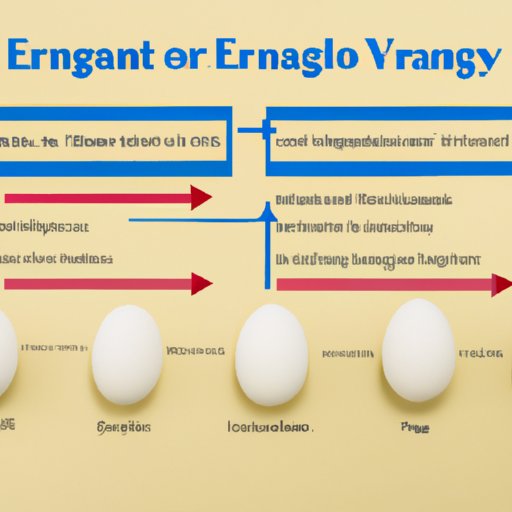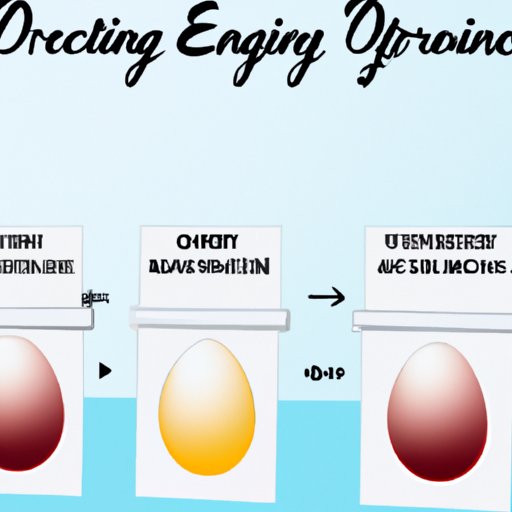Introduction
Donating eggs is a generous act of kindness that can help those struggling with infertility achieve their dream of having a family. Egg donation is an increasingly popular option for many couples who are unable to conceive naturally or who may otherwise be unable to have a child. But what exactly is egg donation and how does it work? In this article, we explore the process, benefits and risks of donating eggs.

A Guide to the Process of Donating Eggs
The egg donation process can vary depending on the clinic, but there are generally several steps involved in the process. Generally, the donor will first undergo a screening process to assess her suitability as an egg donor. This typically includes a detailed medical history, physical examination, genetic testing, psychological counselling and other tests. Once approved, the donor will then take fertility medications to stimulate her ovaries and prepare her body for egg retrieval.
Once the donor’s eggs are mature, they will be retrieved through a surgical procedure known as oocyte aspiration, which is usually performed under general anaesthesia. The eggs are then frozen and stored until they are ready to be used in an IVF treatment cycle. Finally, the eggs will be fertilised with sperm, and the resulting embryos will be transferred to the recipient’s uterus.
The Science Behind Egg Donation
Egg donation is a complex process that relies heavily on scientific advances. The biology of egg donation involves a complex chain of events that must occur in order for the process to be successful. First, the donor’s ovaries must be stimulated with fertility medications in order to produce multiple eggs. Next, these eggs must be retrieved from the ovaries and fertilised with sperm. Finally, the resulting embryos must be transferred to the recipient’s uterus.
The science behind egg donation is constantly evolving and advancing, allowing more women to become egg donors and increasing the chances of success for recipients. As technology continues to improve, so do the chances of successful egg donation.
What You Should Know Before Donating Eggs
Before donating eggs, there are several legal and financial aspects that should be considered. The amount of compensation for egg donors varies from clinic to clinic, but most clinics offer some form of compensation for time and effort. It’s important to note that donation is strictly voluntary and no one should ever feel pressured into donating eggs.
It’s also important to understand the risks associated with egg donation. Donors may experience side effects such as abdominal pain, bloating, nausea and fatigue. In rare cases, serious complications can occur, including ovarian hyperstimulation syndrome (OHSS) and infection. It’s important to speak to your doctor about any potential risks before deciding to donate eggs.

The Pros and Cons of Donating Eggs
The decision to donate eggs is a personal one and should not be taken lightly. There are both advantages and disadvantages to consider when deciding whether or not to donate eggs. On the one hand, donating eggs can provide a great sense of satisfaction and fulfillment knowing that you have helped someone create a family. Additionally, donors can receive financial compensation for their time and effort.
On the other hand, donating eggs can be physically and emotionally demanding. Donors may experience side effects from the fertility medications and the egg retrieval process itself can be uncomfortable. Furthermore, donors may feel a sense of loss or grief after the donation, as the eggs will no longer be part of their own biological family.

An Overview of the Donating Egg Process
The journey from donor to recipient can take anywhere from a few weeks to several months. During this time, the donor and recipient will be in contact with each other, although the extent of contact depends on the wishes of both parties. After the egg retrieval, the donor will receive support and advice from the clinic, and may be offered counselling if needed.
Aftercare for donors is very important and should not be overlooked. It’s important to remember that the egg donation process can be physically and emotionally draining, and donors should be sure to get the necessary rest and support during this time. Donors may also wish to seek professional counselling if they feel overwhelmed by the experience.
Conclusion
Donating eggs is a generous act of kindness that can help those struggling with infertility achieve their dream of having a family. While the process can be physically and emotionally demanding, there are also many benefits to donating eggs. Understanding the legal and financial aspects of egg donation, as well as the potential risks and rewards, is key to making an informed decision.
For those who decide to donate eggs, the journey from donor to recipient can be a rewarding experience. With the right support and aftercare, donors can feel proud of their contribution and empowered by the knowledge that they have helped another family realize their dream of having a child.
(Note: Is this article not meeting your expectations? Do you have knowledge or insights to share? Unlock new opportunities and expand your reach by joining our authors team. Click Registration to join us and share your expertise with our readers.)
